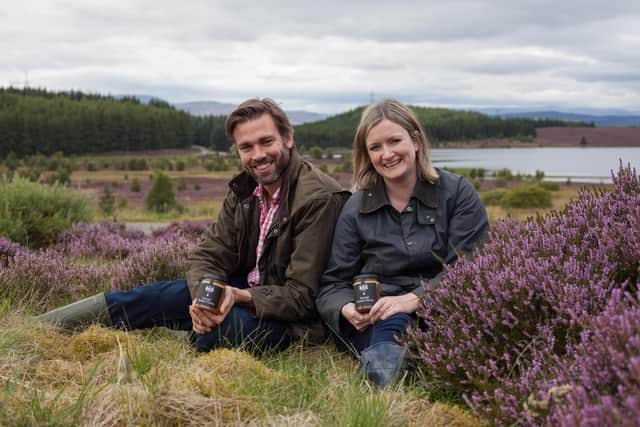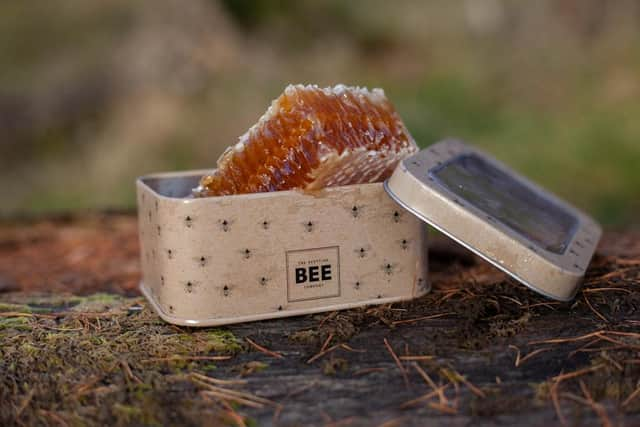Scottish heather honey revealed as world-leading superfood
Scientific tests carried out on honey made by bees feeding on heather in the Lothians, Dumfriesshire, Stirlingshire, Fife and Aberdeenshire have shown it contains significantly higher levels of manganese than many similar products from across the world.
Manganese is an essential mineral with high antioxidant qualities.
Advertisement
Hide AdAdvertisement
Hide AdIt also plays a role in making and activating enzymes in the body which are involved in protecting tissues from damage and in the metabolism of nutrients, as well as helping maintain healthy bones.


The findings put the Scottish honey among the top health-giving foods and cements its place as a rival to the much-lauded manuka honey from New Zealand.
Researchers from Fera Science, part-owned by the UK government, analysed samples of heather honey produced by the Edinburgh-based Scottish Bee Company to investigate its nutritional content.
The results were compared to more than 200 honeys produce worldwide, revealing the heather honey contains significantly higher levels of manganese and contains a range of other health benefits.
Previous studies, carried out at Glasgow’s University of Strathclyde last year, revealed the honey also has important antimicrobial properties.


Dr Adrian Charlton, of Fera Science, said: “We didn’t know that honey of any type could be a significant source of dietary manganese before this piece of work was completed.”
Suzie Millar, co-founder of the Scottish Bee Company, said: “It’s been remarkable to see the results of the scientific analysis show that our Scottish heather honey has superfood quality, more so than many other honeys around the world.
“What’s even more exciting is that it doesn’t need to be imported from other countries.
Advertisement
Hide AdAdvertisement
Hide Ad“We have these wonderful, natural products right here in Scotland.”
The Scottish Bee Company was founded by Iain and Suzie Millar in 2017 out of a love for the environment and the honey bee.
The pair were concerned over major declines in bee populations across the planet, so decided they would do something to help while also producing more locally sourced, eco-friendly honey.
In two years they have increased bee numbers by around 23 million and introduced Scotland’s first bee-farming apprenticeship.
For more information about the Scottish Bee Company visit www.scottishbeecompany.co.uk.
A message from the Editor:
Thank you for reading this story on our website. While I have your attention, I also have an important request to make of you.
With the coronavirus lockdown having a major impact on many of our advertisers - and consequently the revenue we receive - we are more reliant than ever on you taking out a digital subscription.
Subscribe to scotsman.com and enjoy unlimited access to Scottish news and information online and on our app. With a digital subscription, you can read more than 5 articles, see fewer ads, enjoy faster load times, and get access to exclusive newsletters and content. Visit https://www.scotsman.com/subscriptions now to sign up.
Advertisement
Hide AdAdvertisement
Hide AdOur journalism costs money and we rely on advertising, print and digital revenues to help to support them. By supporting us, we are able to support you in providing trusted, fact-checked content for this website.
Comments
Want to join the conversation? Please or to comment on this article.